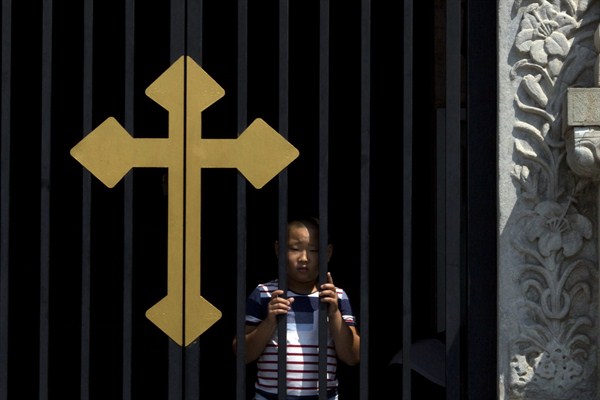In late May, at a high-level Community Party meeting, Chinese President Xi Jinping cautioned that religions in China must be free from foreign influence and incorporated into socialist Chinese society. Xi’s warning appears to have its limits: It has not deterred the Vatican’s secretary of state, Cardinal Pietro Parolin, from reiterating his hopes that the embryonic dialogue between Beijing and the Holy See will continue to move forward. But the prospects of warmer ties between Beijing and the Vatican doesn’t play well in Hong Kong, where the city’s Catholic leadership has been a vocal supporter of the democracy movement in the former British colony, which was handed over to China in 1997.
Rapprochement between China and the Vatican is still in its early stages. The Holy See cut off diplomatic ties with Beijing back in 1951, two years after the Chinese Communist Party had seized power. Ties have not improved for decades, given ongoing confrontations between China’s unregistered “underground” church, which remains loyal to Rome, and the CCP-run Chinese Catholic Patriotic Association, which ordains its own bishops and maintains state supervision over Catholics in mainland China. To date, there are an estimated 12 million members of the Roman Catholic Church in China.
But since Pope Francis’ election in March 2013, Vatican policy toward China’s communist leadership has softened. In March 2015, Cardinal Parolin maintained that talks with the Chinese leadership were underway. Now rumors are swirling in the Italian press that an agreement for mutual diplomatic recognition between the Holy See and China is at hand, and that Pope Francis could visit China by the end of the year, if not by next summer.

